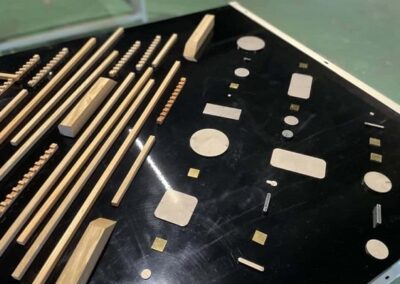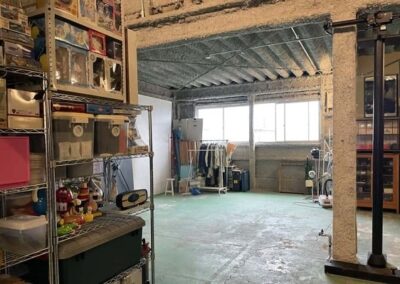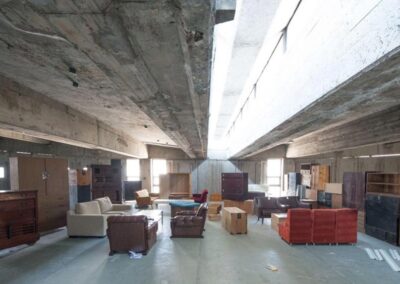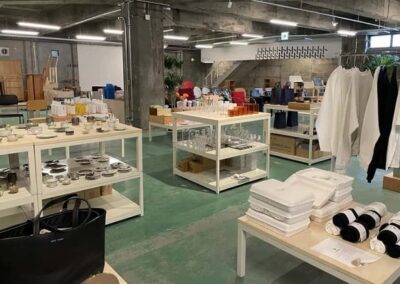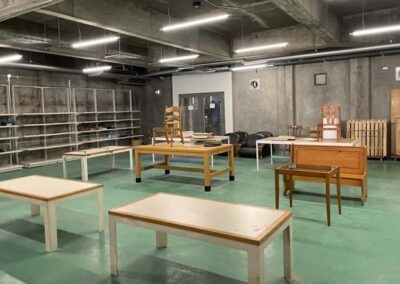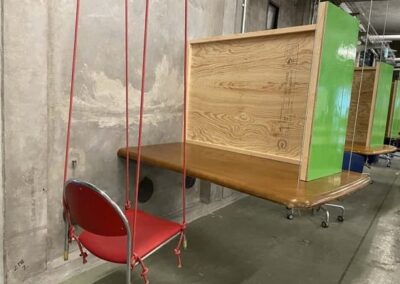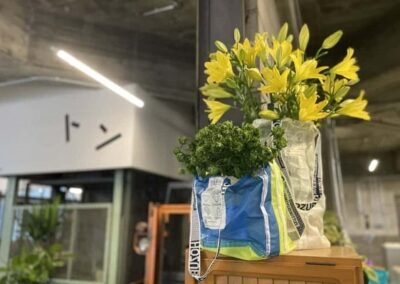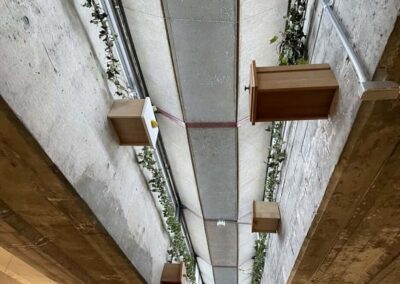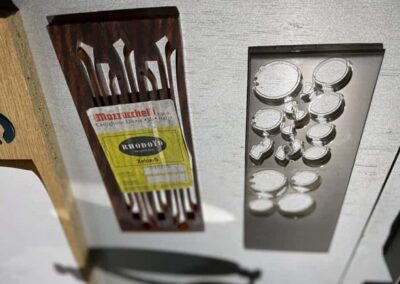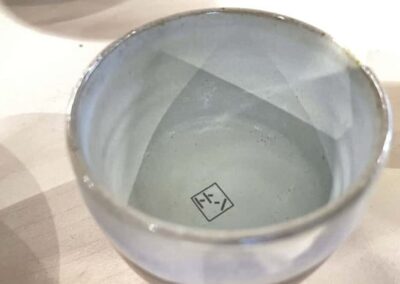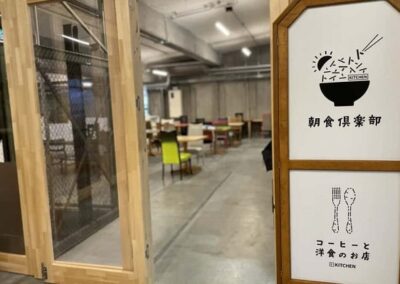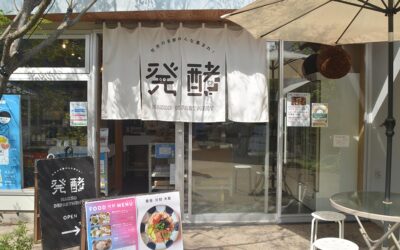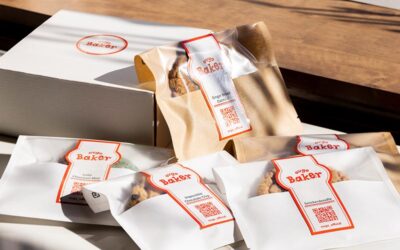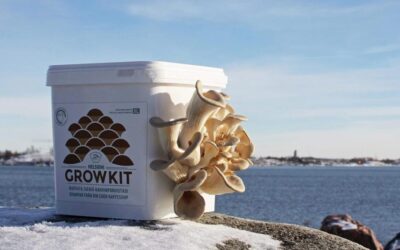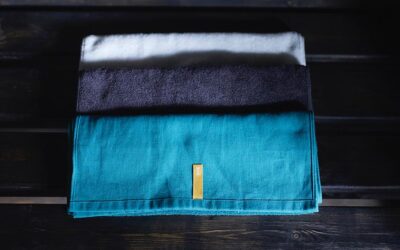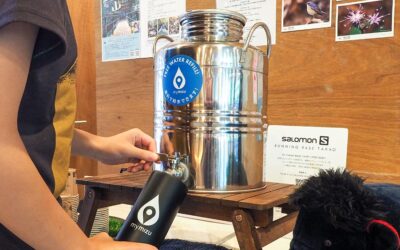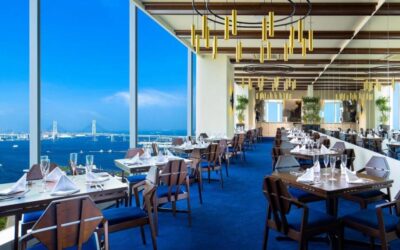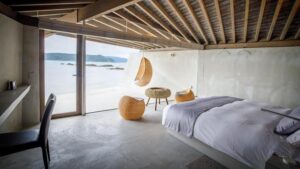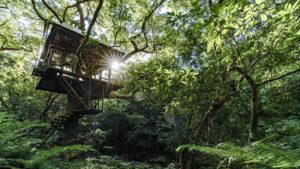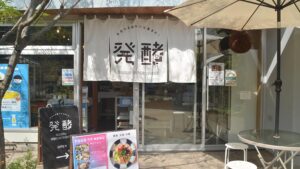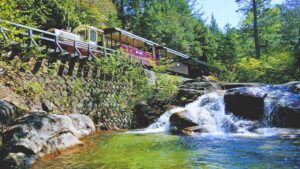A place where materials can find new upcyclists
Located in Toyama City, Toton is a sustainable and circular economy-themed facility that incorporates local goods. It is located in an area called Monyamachi, where warehouses are lined up, about 12 minutes by car from Toyama Station. The facility was created by renovating a two-story warehouse owned by Komesan Co. Ltd., which sells Toyama furniture and interior products. The facility has a very spacious and open atmosphere.
The sustainable complex facility consists of six areas: Material Library, Circular Shop, Repair/DIY Space, Co-Working Floor, Photo Studio, and Cafe.
Area 1: Material Library, a treasure trove of upcycling ideas, is located on the left immediately after entering the entrance. The materials displayed here include scraps from companies based in Hokuriku (region located in the northwestern part the main island of Japan). If there are any materials that catch your eye and could be used for upcycling, it is possible to connect with them.
Area 2: Circular Shop, which also sells upcycled products from Hokuriku, is a shop space where Toton’s customers have selected sustainable items from their unique perspective. Bags, accessories, and dishes made from scraps and waste materials are displayed here.
San-suke-yaki, one of the traditional crafts of Tona city in Toyama prefecture, which has a 160-year history, is also sold at Toton. Pottery that has not been sold due to reasons such as not being able to add the right amount of medicinal herbs or being slightly incomplete is fixed up and sold as an original product with the Toton logo. The unique color created by the vegetation immediately captures one’s heart.
In addition, Sabae city in Fukui Prefecture is a production area for eyeglasses. Even though they try to minimize waste, it seems that they inevitably end up with scraps of material from eyeglass frames. The accessories made from these scraps are also sold at Toton.
Area 3: Repair/DIY Space, where you can enjoy yourself freely, is located behind the Circular Shop. This space allows you to DIY using furniture parts and scraps that have been collected and dismantled. They are fully equipped with tools and equipment, and you may even bring your own materials. Furniture craftsmen are also on hand, so consultations are possible. It is currently by appointment only, so it is recommended to check the website for details.
Area 4: Co-working Floor, where upcycled furniture is lined up, is located immediately after going up to the second floor. The spacious Co-working Floor is equipped with Wi-Fi, power outlets, and a copy machine. Only upcycled furniture are displayed, each unique. Working here is sure to inspire new ideas. In addition to the membership plan, temporary use by the general public is also possible, though usage hours differ for members and non-members.
Ito-san from “Yes,” which upcycles Japanese-style cabinets in Toyama, who also participated in the launch of Toton, says that his favorite spot is the view from the event space. The space has a pleasant atmosphere with natural light from the ceiling and greenery.
Area 5: Photo Studio, where you can take photos with a unique atmosphere, is located behind the Co-working Floor. A professional photographer is always present, and by making a reservation in advance, the studio can be used, including camera equipment.
Area 6: Toton KITCHEN on the second floor is a cafe restaurant that operates as a “breakfast club” from 7 am. The recommended menu is Toton’s breakfast, which is produced by the chef of the long-established restaurant Hamata-ya in Uozu City, Toyama Prefecture. The main grilled fish uses fish caught in Toyama, and local vegetables are also used abundantly in the side dishes, making it a menu that is conscious of local production and consumption. The dishes and trays also consider sustainability, using B-grade (slightly imperfect) or deadstock items, as well as trays made by craftsmen using leftover materials. At lunchtime, there are plans to open as a restaurant that serves hamburgers and authentic coffee made by a local long-established yakiniku (grilled meat) restaurant. Menu development will also focus on reducing food loss.
Toton is a facility that was born from the solutions that Komesan considered for the waste problem they have faced as a furniture store. It has become a place full of ideas that make you want to abandon the idea of “throwing things away.”
Originally published on Life Hugger.

